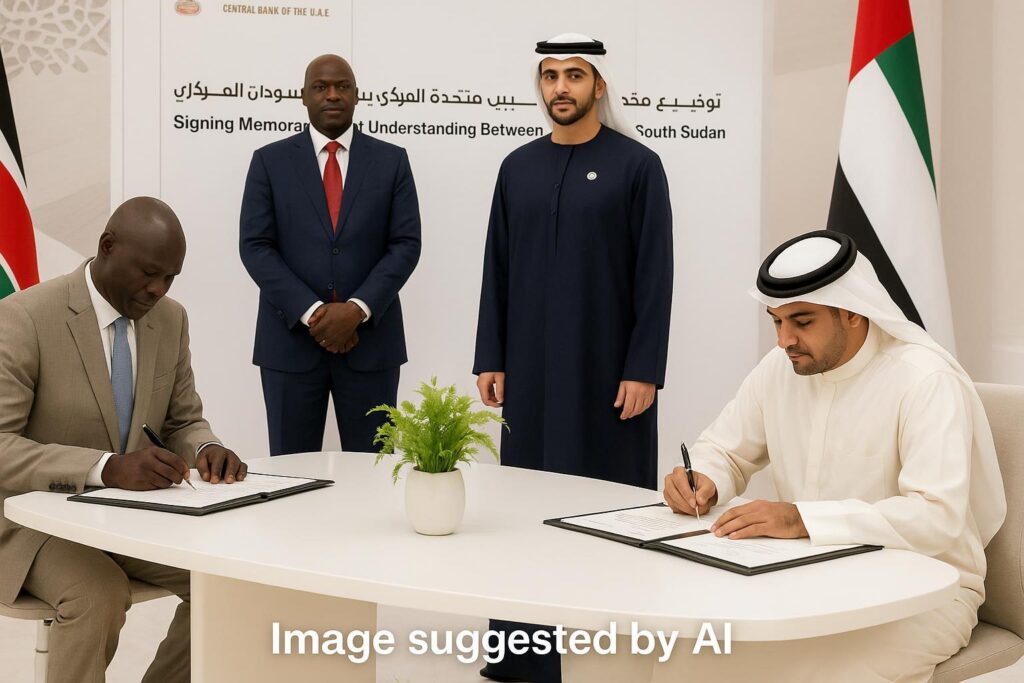Historic accord on sovereign currency
In Abu Dhabi, governors Khalid Mohammed Balama and Dr Addis Ababa Othow signed a memorandum that hands the UAE’s Omlat security-printing unit responsibility for South Sudan’s new banknotes.
Officials described the pact as a “milestone for economic cooperation.” Sheikh Shakhbout bin Nahyan Al Nahyan hailed it as proof the Emirates can “support African resilience” while Vice-President Benjamin Bol Mel called it “a vote of confidence in our reforms.”
Tackling hyperinflation pressure
The South Sudanese pound has lost more than 40 percent of its value this year, according to the Juba-based Ebony Center for Strategic Studies.
Economist James Alic Garang notes that outsourced printing may curb counterfeiting and restore trust, yet warns that any parallel resort to monetary financing “would swiftly erode the benefits.”
Digital payments leapfrog ambition
Al Etihad Payments will roll out a two-phase domestic card scheme designed to cut reliance on cash and informal transfers.
Central bank data show that only 6 percent of adults currently hold a payment card. The new rails could widen financial inclusion and reduce dollar demand in border markets.
Capacity building at Emirates Institute
Up to 120 South Sudanese officials will receive tailored courses in bank supervision, cybersecurity and macro-prudential analysis in Dubai.
Governor Othow argues that “knowledge transfer is as critical as new banknotes” because modern oversight will deter the financial mismanagement that fuelled past crises.
Timeline and regional ripple effects
Implementation details remain under discussion, though insiders suggest trial notes could enter circulation within nine months.
Kenyan analyst Mercy Mulu says the deal signals growing Gulf engagement in the Nile Basin and may encourage neighbouring states to seek similar technical partnerships rather than rely solely on Western printers.


